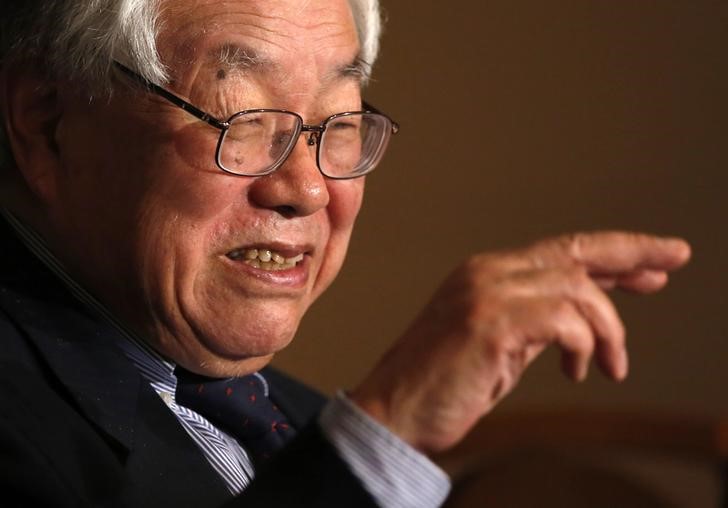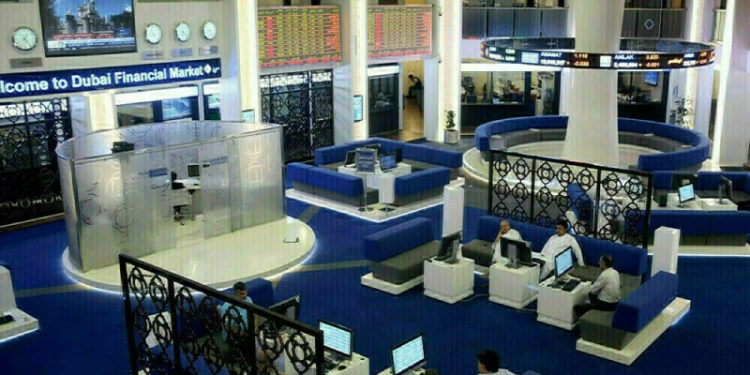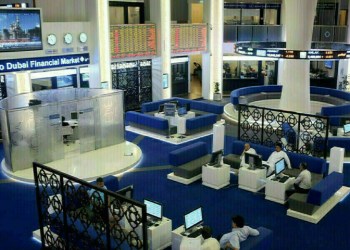 © Reuters. FILE PHOTO: Koichi Hamada, professor emeritus of economics at Yale University and an economic adviser to Japan’s Prime Minister Shinzo Abe, speaks during a news conference in Tokyo
© Reuters. FILE PHOTO: Koichi Hamada, professor emeritus of economics at Yale University and an economic adviser to Japan’s Prime Minister Shinzo Abe, speaks during a news conference in TokyoBy Leika Kihara and Kaori Kaneko
TOKYO (Reuters) – The Bank of Japan should consider buying foreign bonds as part of efforts to reflate the economy during Governor Haruhiko Kuroda’s second term at the central bank helm, an economic adviser to Prime Minister Shinzo Abe said.
The BOJ is prohibited by law from buying foreign bonds for the explicit purpose of influencing currency rates, as exchange rate policy falls under the jurisdiction of the finance ministry.
But some academics have proposed that the BOJ could buy them if doing so was aimed at pump-priming the economy, an idea the central bank has dismissed so far because it would be hard to convince Tokyo’s G20 counterparts that Japan wasn’t trying to affect the yen’s value.
“Under the BOJ law, the finance ministry holds jurisdiction over currency policy. But I hope Kuroda would consider having the BOJ buy foreign bonds,” Koichi Hamada, an emeritus professor of economics at Yale University, told Reuters in an interview on Thursday.
Hamada said while the central bank cannot buy bonds for the sake of affecting exchange rates, it could do so “as a means for delivering proper monetary policy for Japan.”
In the near-term, however, there are limits to what the BOJ can do to prevent sharp yen rises from derailing Japan’s economic recovery, he added.
The government last week reappointed Kuroda for another term and chose an advocate of bolder monetary easing as one of his two deputies, a sign policymakers are in no rush to turn off a sweeping stimulus program.
The announcement did little to reverse the yen’s recent rises against the dollar, which has drawn verbal warnings by Japanese policymakers worried of the pain a strong yen could inflict on an export-reliant economy.
“The yen rose after the announcement of the government’s BOJ nominees,” Hamada said. “There’s a limit to how much monetary easing can keep yen rises in check.”
Hamada, who lives in the United States, conducted the interview over the phone and email exchanges with Reuters.
Under its huge asset-buying program to prop up inflation to its 2 percent target, the BOJ has been buying government bonds and risky assets such as exchange-traded funds (ETF).
Critics say the BOJ’s buying has dried up bond market liquidity and caused distortions in the stock market, leaving the central bank with little ammunition to stave off external shocks to the economy such as the hit from a strong yen.
The buying of foreign bonds by the central bank has been floated as a possible idea by some academics in the past as a way to counter such external shocks. But most policymakers are cautious because doing so could draw criticism from Tokyo’s G20 partners as an attempt to manipulate currencies.
The dollar has been weighed down by a variety of factors this year, including concerns Washington might pursue a weak currency strategy and the perceived erosion of its yield advantage as other nations start to scale back easy money policies.
Hamada praised Kuroda’s policies for helping revive growth, saying it was “understandable” that the government decided to reappoint him for another five-year term.
“The BOJ’s policy under Kuroda has contributed greatly to Japan’s economic recovery,” he said.
“If it’s a working strategy, there’s no need to change it.”
Source: Investing.com





























